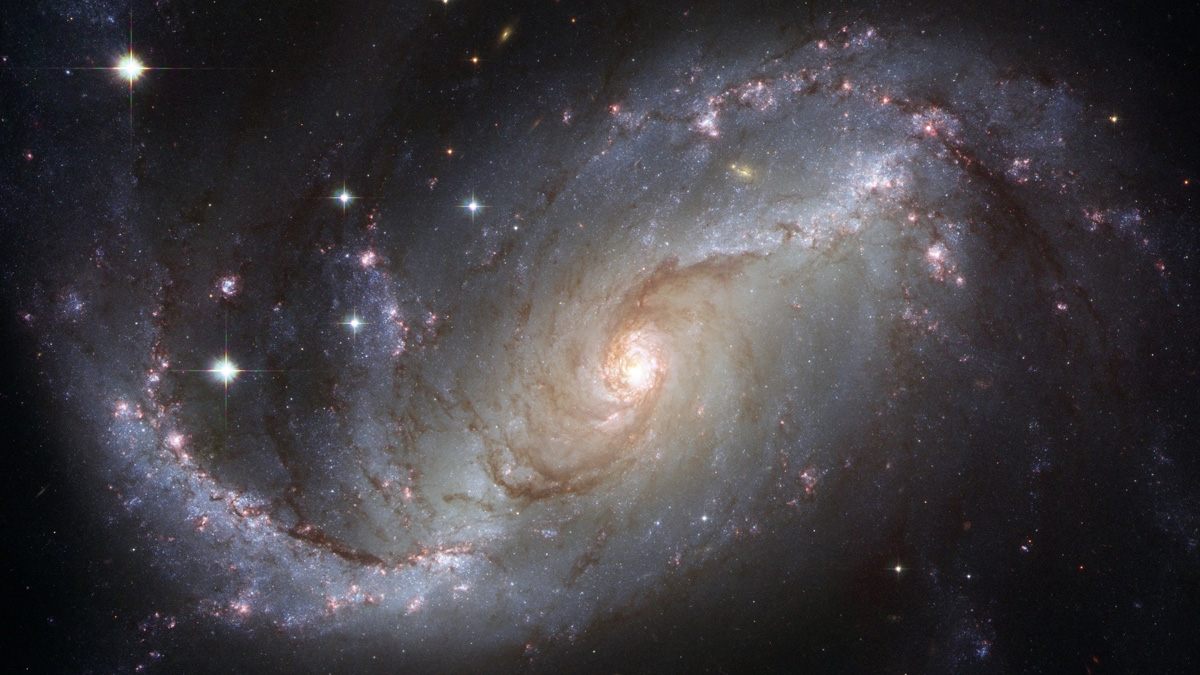At its heart, the cosmological argument for God says that anything that begins to exist must have a cause. Used in conjunction with the Big Bang Theory, apologists can rightly argue that our universe seems to have a point of origin and therefore a cause. As an atheist, I tend to not believe in a supernatural creator that did not begin to exist…so, what caused the Big Bang? Well, I don’t know, (this is a valid response) but let’s look at some options.
Quantum foam
I can’t explain this better than Lawrence Krauss so I prefer that you come back after reading the book A Universe from Nothing or after watching a relevant lecture. The best layman explanation I can provide is that “nothing” (the absence of conventional matter, energy, space & time) is an unstable state and quantum fluctuations will give rise to something–even the singularity that became our universe.
Self-Causation
Violated causality is a logic no-no, however, it is a valid interpretation of quantum mechanics. If A can cause B which can cause A–then the first instants of the universe, while it was still at the quantum scale, could be it’s own catalyst. It’s counter-intuitive, but that’s the name of the quantum game and why we shouldn’t assume we know how physics work at the literal dawn of time.
Result of a Collapsing Star on a Higher Dimension
I’ll be honest, astrophysics is even less my area than quantum mechanics. Read this.
Result of a Multiversal Event
It has been theorized that bubble universes interacting could cause a new universe. Or a simulated universe could become complex enough to program a nested simulated universe. Or something.
Big Bang/Big Crunch Cycle
It’s the idea that the universe expands then contracts back into a singularity which expands into a new universe. The cycle is an older hypothesis that is now less likely than once thought due to new information about the structure of space…but we don’t yet know what dark matter and dark energy is yet so I wouldn’t count this out entirely.
The universe is essentially eternal and therefore causeless
Yes, there is a point of origin, but I’m not so sure we can regard the movement of time at it’s birth to our standards. For instance, if time moved exponentially slower the closer to its point of origin, the 13.8 billion years we think the universe has been around is only correct judging time from our perspective. It could be essentially eternal.
Magic
Theists draw upon the supernatural in support of their preferred god all the time, so I can just as easily suppose the supernatural as an option that abolishes the need for a god. I firmly believe there is a natural process that resulted in our universe, but even if there isn’t, that doesn’t rule out that the supernatural process involved is unguided and spontaneous. Any inquiry on how this is possible can be dismissed with one word: magic.
A theist reading this may think: that atheist is believing in some really outlandish stuff to avoid God. To this I say, nothing presented here is more outlandish than God, you’re just not as familiar with these concepts. You haven’t been indoctrinated into thinking the multiverse is a thing. And, to be clear, I don’t “believe in” any given option here. They may or may not be possible, but they are no less valid than “God did it.”
*Events that precede space and time are nonsensical to our experience. Some of the above options require both a time-like dimension and a space-like dimension independent of our universe, but then so would an eternal deity.
**If you understand the latest in quantum mechanics or cosmology or theoretical physics, please comment with citations. I’ll gladly update this post with more accurate information.

